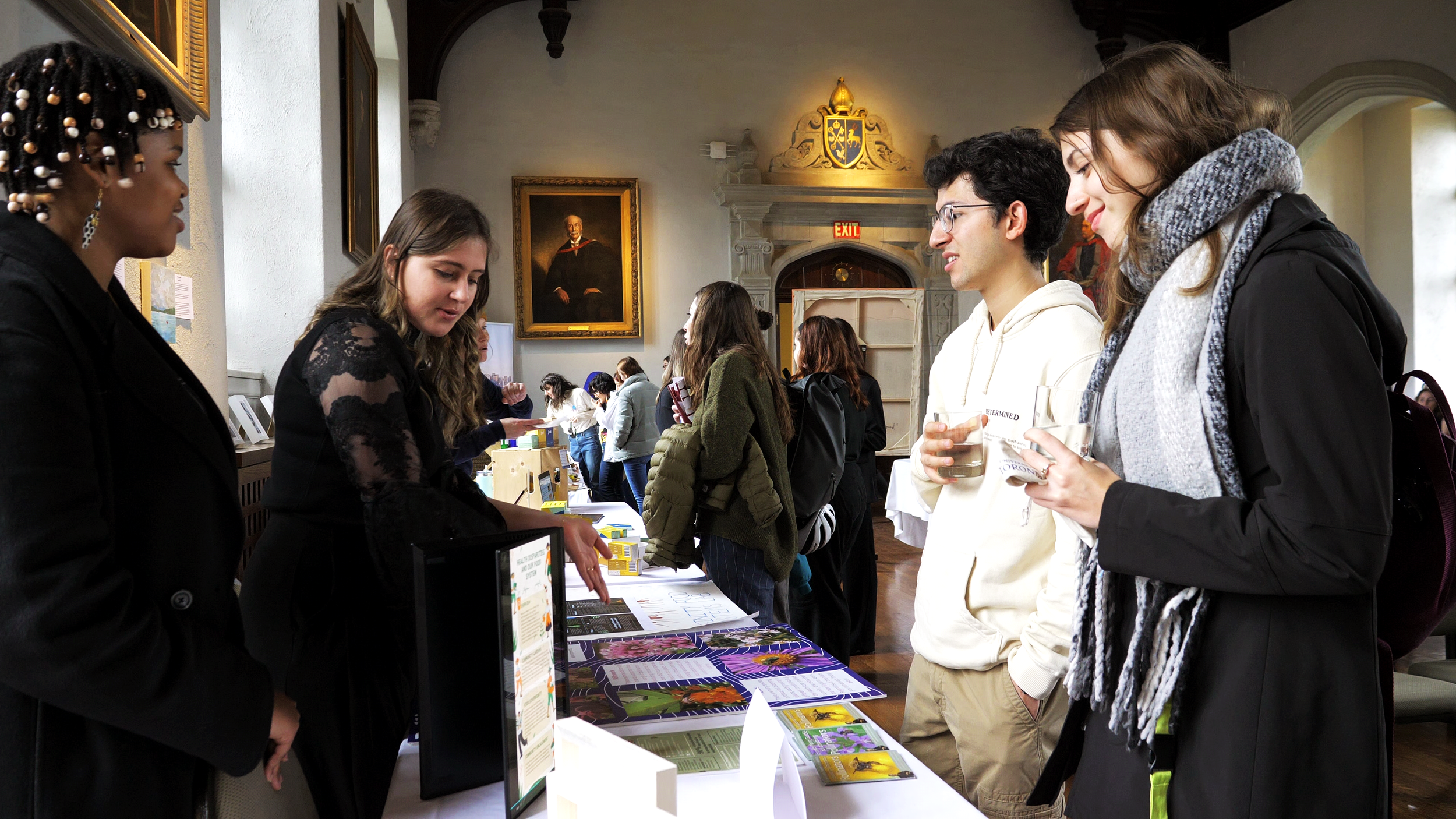“The fair and its planning provided a transformative experience where we began to reimagine our connection to the environment, ourselves and each other”
Reflection by Lizramona Mwakitwange, originally published by Trinity College
Trinity College’s Integrated Sustainability Initiative hosted Women’s Healthy Environments Network (WHEN) in their largest Wannabe Toxic Free (WTF): Awareness, Agency, and Collective Action fair on January 26, 2024 at the College. Led by Honour Stahl (WHEN Executive Director and Trinity’s Ethics, Society & Law program graduate) and Professor Nicole Spiegelaar (Academic Director of the Integrated Sustainability Initiative), the fair brought together a diverse set of educators, students, activists, and local businesses to raise awareness on the intersectional effects of environmental risk on women’s health, as well as ways to address them.
In her opening remarks, Honour encouraged us to recognize the unfortunate reality that in over 25 years, the environmental health challenges highlighted by WHEN, such as a lack of concrete toxic regulation, have not been acted upon. Despite this, she encouraged us to see this “as an opportunity for us to pick up the torch and move through this challenge together.”
Having volunteered with WHEN for close to a year now, I have had the pleasure of witnessing exactly this. The WTF event marked a culmination of efforts by WHEN’s dedicated staff, volunteers and friends, many of whom are students involved with Trinity’s Integrated Sustainability Initiative and the School of the Environment. The fair and its planning provided a transformative experience where we began to reimagine our connection to the environment, ourselves and each other – not as separate experiences, but as fundamentally connected pursuits of community and holistic health that are informed by intersectional feminist thinking.
These sentiments were especially evident through the panel discussion as well as the unique student art pieces performed and displayed throughout the hall, which invited participants to think about the manifestation of environmental injustice in the lives of our diverse community. These did not serve as merely academic, aesthetic and acoustic achievements, but unapologetic windows into deeply personal interpretations of what it means to truly respect nature: not as a source of material wealth, but as an entity that speaks to our responsibility to care and practice empathy and solidarity with the most vulnerable people in our communities, including the women and gender diverse people who are victims of environmental and social injustice.
In the words of Professor Nicole Spiegelaar: “The toxic environments we are living in are not separate from the toxic patterns of thought and practices of colonization in Canada.” Cultivating this way of thinking about environmental injustices has been an essential part of enriching my educational experience at the University of Toronto, allowing me to occupy space with intentional consideration of my feelings, recognizing the ways in which I react to my environment and how I can transform these into actions toward building a more sustainable future for myself and my community. As a racialized woman, this has been a truly empowering experience for myself, especially having lived in a world where I have witnessed far too many marginalized individuals be shamed for being “too emotional” or “irrational” in circumstances where we seek to be heard, which discredits our lived experiences.
Many of the people involved with WHEN come from diverse cultural, academic and professional backgrounds. My involvement with the organization and the WTF fair has grounded me with a deep reverence for community and leaning into spaces that support and uplift my voice, allowing me to extend this same grace within and beyond WHEN. For myself as well as Alicia Luboch and Nicole Nicola, other incredibly passionate students who I have connected with through WHEN and the Margaret MacMillan Trinity One Program, this has meant founding and leading a WHEN Student Club here at the University of Toronto. With this platform, we seek to mobilize women and gender diverse youth as catalysts for change toward toxic-free and healthier environments for all people. We are excited about the possibility of amplifying the discussions from the WTF fair and transforming these into consistent conversations within our student community.
Visit our Arts & Community Events Page to learn more about WTF.
Lizramona Mwakitwange is a WHEN Volunteer and leader of the WHEN Student Club at UofT. She is an undergraduate student at Trinity College who is double majoring in Health & Disease and Environment & Health, with a Certificate in Sustainability. Lizramona is a graduate of the Butterfield Environment & Sustainability stream of the Margaret MacMillan Trinity One program and involved with the Food Systems Lab and Trinity’s Integrated Sustainability Initiative.


